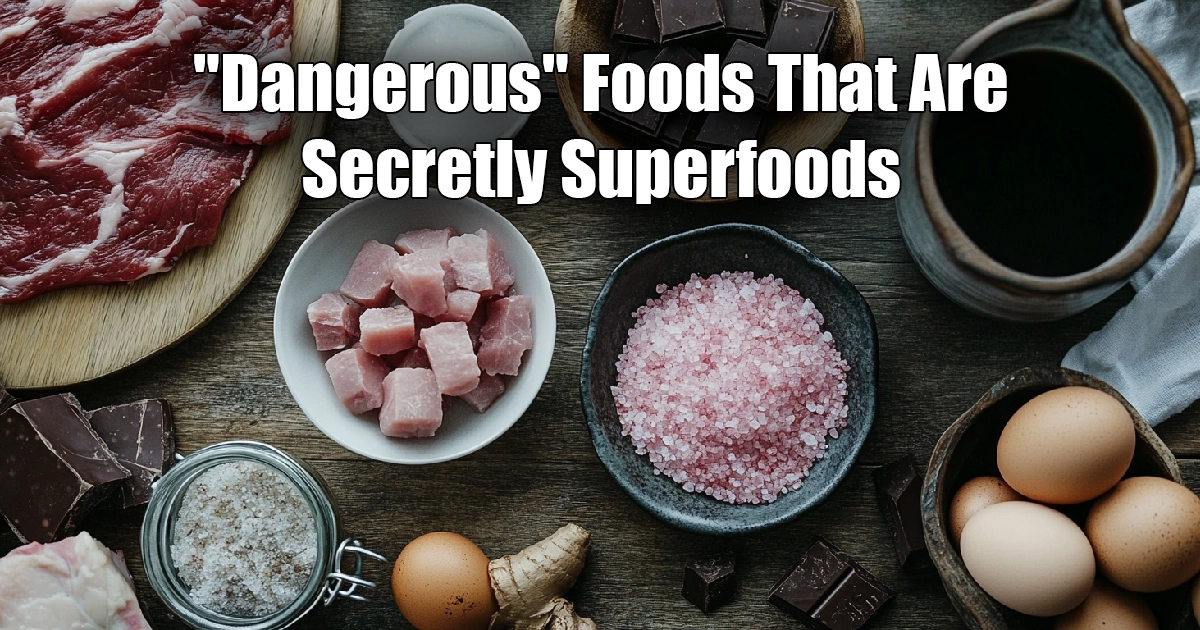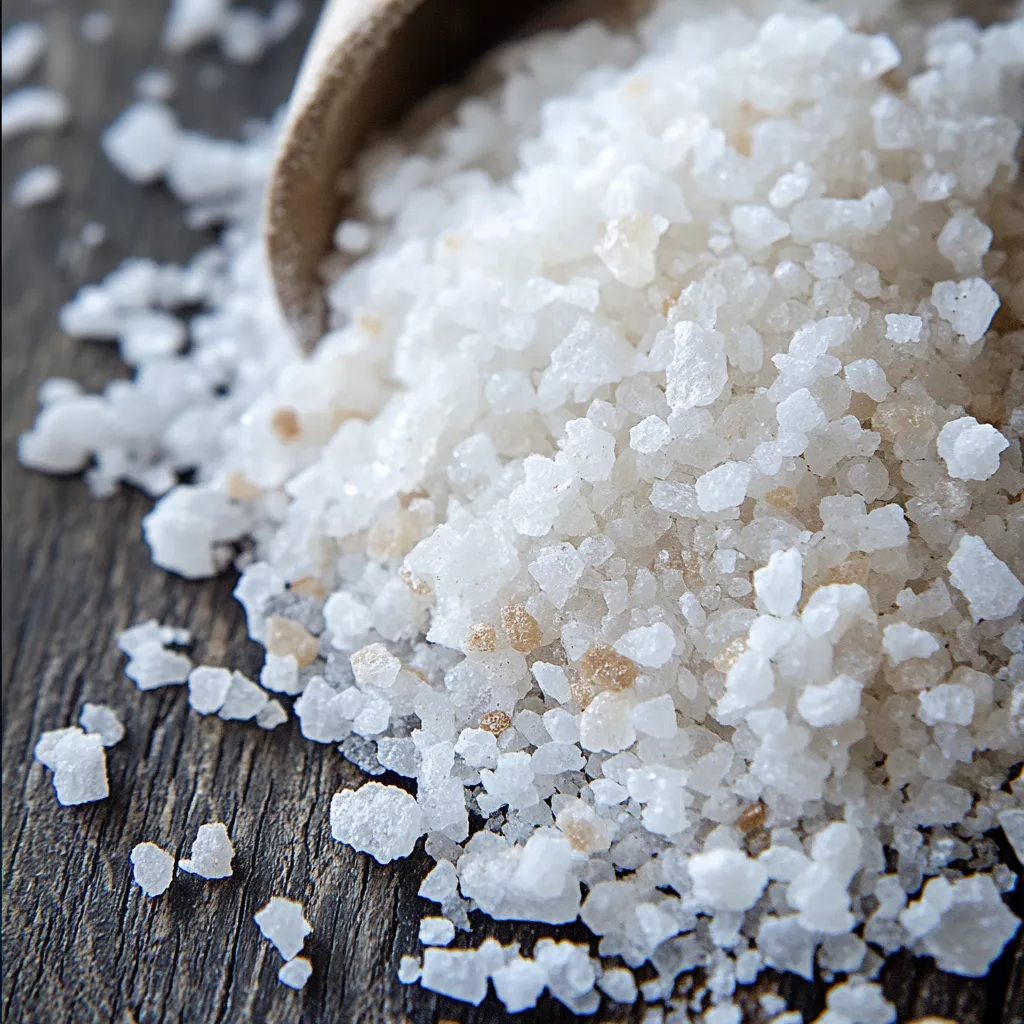

You know the drill: every time you turn on the TV, there's a new report about how everything you love is secretly plotting your demise. But guess what? The mainstream media might just be yanking your chain. The foods they say are killing you? Yeah, they’re actually superfoods in disguise. Let's dive into the truth with these 8 misunderstood culinary heroes that should be making regular cameos on your plate.

Myth: Salt is the villain responsible for high blood pressure and heart disease.
Truth: While too much salt can turn your bloodstream into a mini Dead Sea, it’s not the devil it’s made out to be. Salt is vital for hydration, nerve function, and muscle contractions. Your body literally can’t function without it! The trick is balance and opting for the good stuff, like sea salt or Himalayan salt, rather than the processed table salt that’s about as natural as a plastic plant.
Fun Fact: Studies show that people who consume adequate sodium (within healthy limits) have better overall health outcomes compared to those who go too low.
Myth: Potatoes are just glorified carb bombs waiting to expand your waistline.
Truth: Potatoes are misunderstood tubers. They’re packed with potassium, fiber, and vitamins C and B6. When you skip the deep fryer and instead bake, boil, or roast them, they’re a nutrient-rich side dish that won’t derail your diet.
Fun Fact: The fiber in potatoes can help with weight management by keeping you full longer.

Myth: Butter is the bad guy in your fridge, ready to clog your arteries with every spread.
Truth: Butter, particularly the grass-fed variety, is actually packed with vitamins A, D, E, and K. It’s time to let butter off the hook—just use it in moderation. After all, even kale isn’t good if you eat it by the truckload.
Fun Fact: Grass-fed butter contains higher levels of beneficial fatty acids like conjugated linoleic acid (CLA), which has been linked to health benefits.
Myth: Full-fat dairy will make your heart scream, "No more cheese, please!"
Truth: Full-fat dairy isn’t the artery-clogger it’s often made out to be. In fact, it’s a source of essential fatty acids, vitamins A and D, and it helps you feel fuller longer, which might even help you eat fewer calories overall. Yes, you can have your cheese and eat it too—just maybe not the whole wheel in one sitting.
Fun Fact: Some studies have found that people who consume full-fat dairy are less likely to be obese than those who stick to the fat-free versions.

Myth: Eggs are like little cholesterol bombs ready to blow up your heart.
Truth: Eggs are not the enemy. They’re actually tiny powerhouses loaded with high-quality protein, essential vitamins, and healthy fats. In fact, they can raise your HDL (the good cholesterol) and don’t raise your risk of heart disease—unless you’re downing a dozen daily with a side of bacon-wrapped bacon.
Fun Fact: The American Heart Association says that one egg (or two egg whites) per day can be part of a heart-healthy diet.
Myth: Dark chocolate is just another sugary treat to make your dentist cry.
Truth: Dark chocolate is more than a guilty pleasure—it’s a health food in disguise. Rich in antioxidants, especially flavonoids, it’s been shown to improve heart health and even boost your mood. Just remember, the darker the chocolate (70% cocoa or more), the better the benefits.
Fun Fact: Flavonoids in dark chocolate can improve blood flow and lower blood pressure.
Myth: Eating red meat is basically signing up for a one-way trip to Heart Attack City.
Truth: Red meat, when chosen wisely, is like the Swiss Army knife of foods—rich in protein, iron, zinc, and B vitamins. It’s all about moderation and going for lean cuts like tenderloin, rather than treating yourself to a daily double-bacon cheeseburger. It’s quality over quantity, folks.
Fun Fact: Research shows that moderate consumption of red meat, especially grass-fed, can be part of a balanced diet without increasing heart disease risk.

Myth: Coffee will dehydrate you and send your heart into overdrive.
Truth: Coffee is a lot more than a morning pick-me-up. It’s packed with antioxidants and has been shown to boost metabolism, enhance brain function, and lower the risk of several diseases, including Parkinson’s and Alzheimer’s. As long as you’re not downing venti triple-shot lattes every hour, coffee can be your best morning friend.
Fun Fact: Moderate coffee consumption is associated with a longer lifespan and a reduced risk of cardiovascular disease.
Mainstream media might be all about the doom and gloom, but when it comes to food, it’s not always about what you should avoid—sometimes, it’s about what you should embrace. These eight foods are living proof that a little balance, moderation, and the right choices can turn "bad" foods into nutritional superstars.